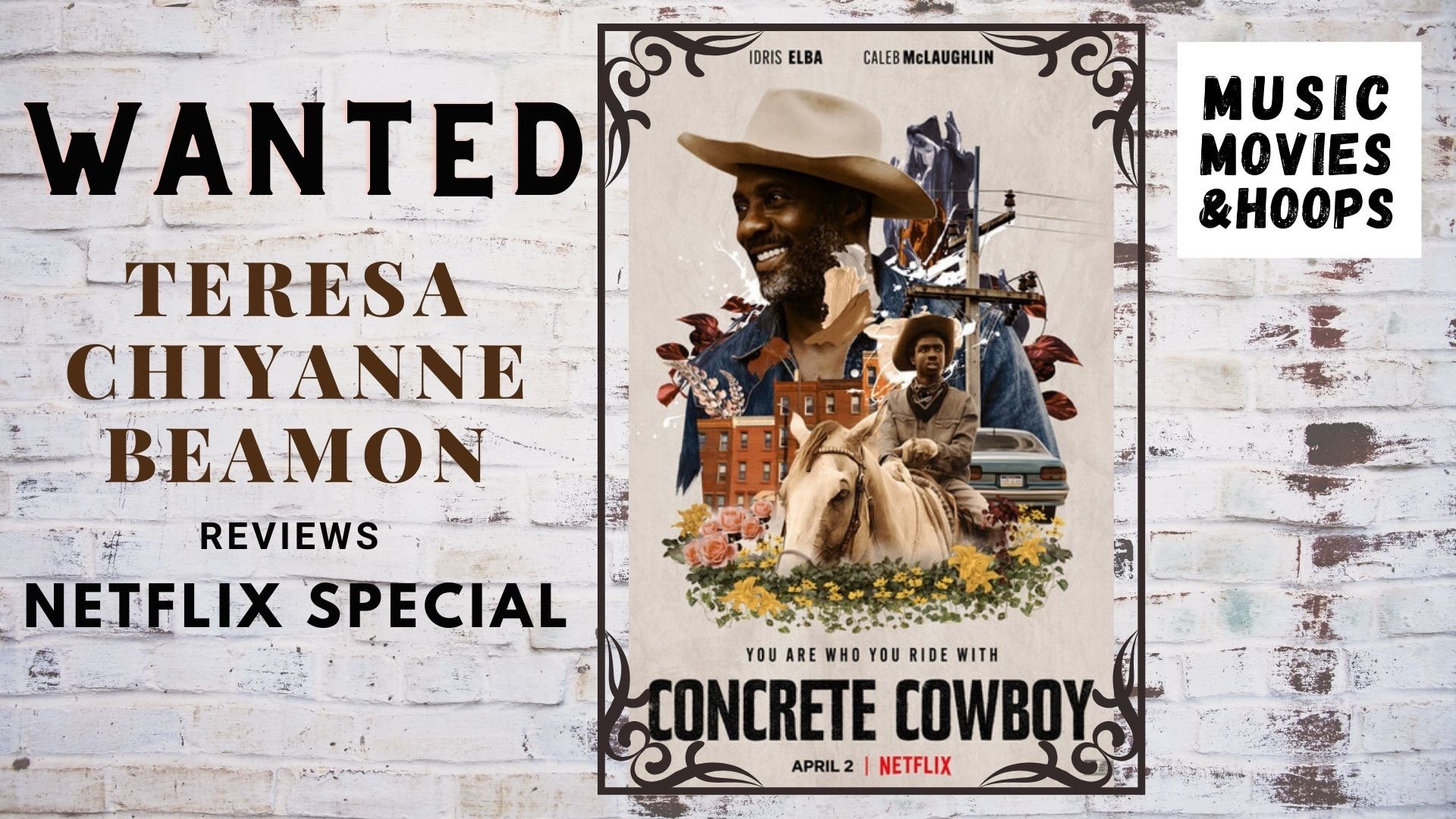There haven’t been many depictions of black cowboys in films. Most cowboy films and tv shows feature caucasian men rather than actors/actresses of color. Growing up, I remember one of my grandmother’s favorite tv shows being Gunsmoke, which was my first exposure to the “American” version of a cowboy; I had even seen a chameleon (Rango, 2011) become a cowboy before I had personally witnessed a black one (unless you count Will Smith in Wild Wild West). But Concrete Cowboy illustrates a unique point of view.
Directed by Ricky Staub and based on the novel Ghetto Cowboy by Gregory Neri, Concrete Cowboy is centered on troubled teenager Cole (Stranger Things’ Caleb McLaughlin), who is taken to live with his estranged father Harp (Takers’ Idris Elba) after his mother decides that staying with him will straighten him up. Continuously bumping heads and opposing the simple life that Harp lives, Cole spends time with his childhood friend Smush (When They See Us’ Jharrel Jerome), who makes his way by selling drugs, and becomes swept up in the rough times that the Philly streets pull him into. In hopes of keeping his son away from this more dangerous life, Harp grants him the chance to familiarize himself with the lifestyle of a Concrete Cowboy.
Contrary to its title, the film is not just about the ins and outs of being a real cowboy; though it includes real Philadelphia cowboys in the cast lineup, we only get a limited view of their real history. Nonetheless, the film’s authentic sense of representation (which could have easily been overlooked) more than makes up for the lack of a detailed history. It also shows the harsh reality that many teenagers go through when trying to find a place they feel like they belong, drawing on the real-life experiences of many of the cast members.
The film’s credits feature the voices of several actual Fletcher Street Riders (the collective of urban cowboys that the film focuses on): Jamal Prattis, Ivannah Mercedes, Albert C Lynch Jr, and Michael Upshur, playing the roles of Paris, Esha, Al, and Miz, respectively. But I do believe the most telling quote comes from Ivannah, who states “I live in Philadelphia and there are people all the time who say to me, ‘What do you mean, you ride horses? Where? There are no horses in Philadelphia.’”
After all, that is the heritage of cowboys (and let’s not forget the cowgirls) of color: the history of cowboys has been whitewashed, so much so that when people think of a cowboy, instinctively they think of a white man mighty on their horse, Colt Peacemaker in hand, and a spur on the back of their boots; in other words, the complete opposite of the depictions given to us in the film. Thankfully Concrete Cowboy adds more color to these voices.
The film also provides a clear message that I’m sure the Fletcher Street Cowboys would support: according to their website, the Fletcher Street Urban Riding Club “remains true to its mission in producing an alternative to outdoor leisure activity to the community and engaging urban youth in equestrian sports while teaching life skills, instilling discipline and promoting academic excellence.” And Concrete Cowboy exudes that same message until the very end.
Concrete Cowboy is available now to stream on Netflix










